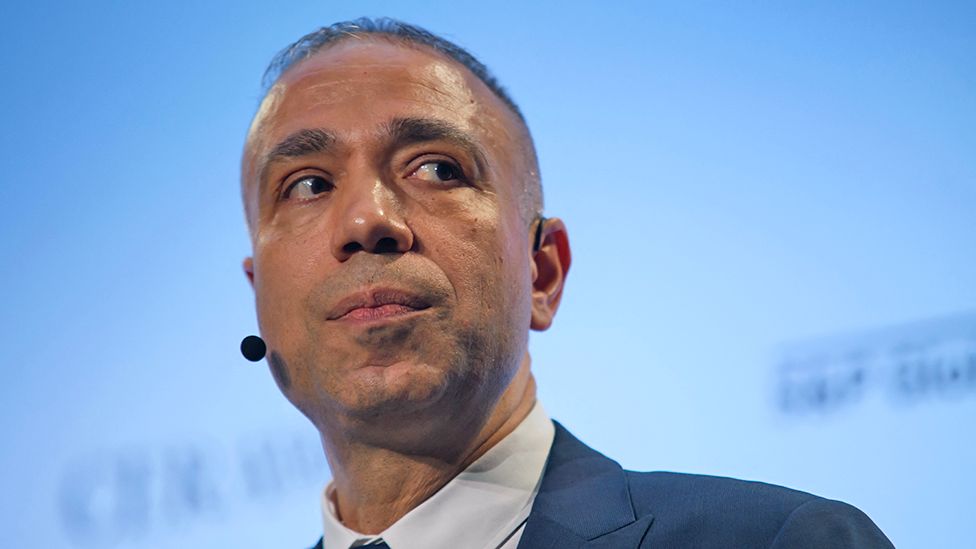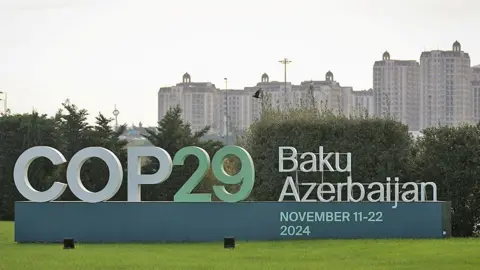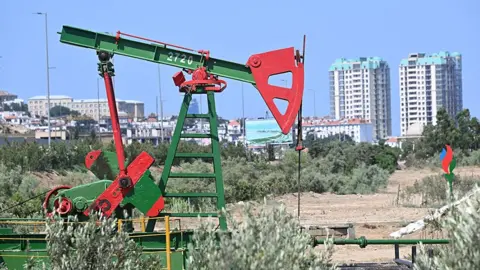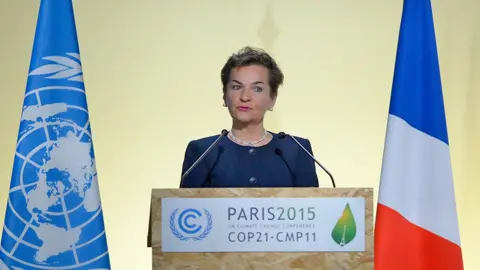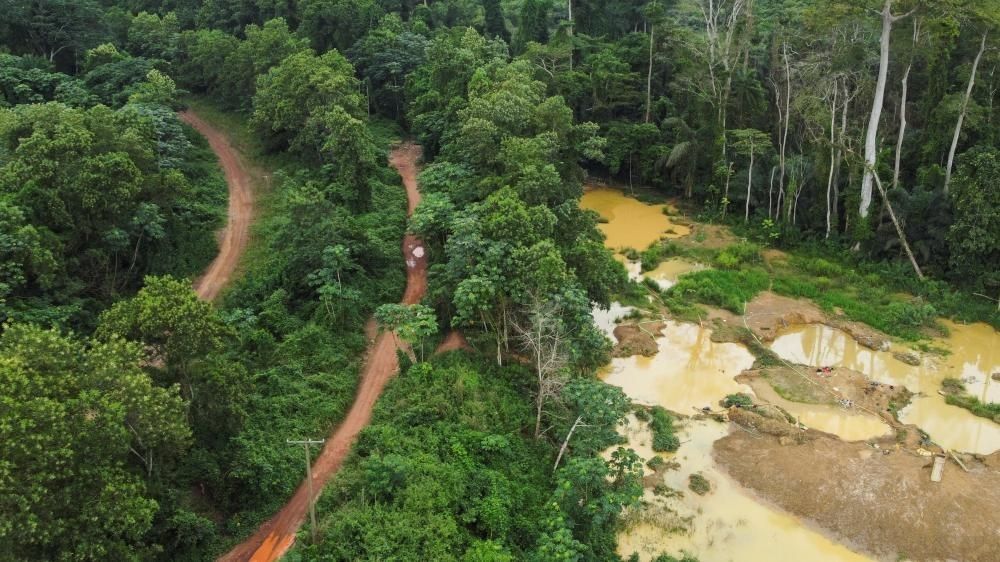As well as being the chief executive of COP29, Soltanov is also the deputy energy minister of Azerbaijan and is on the board of Socar.
Azerbaijan's COP29 team has not responded to a request for comment.
Oil and gas accounts for about half of Azerbaijan's total economy and more than 90% of its exports, according to US figures.
COP29 will open in Baku on Monday and is the 29th annual UN climate summit, where governments discuss how to limit and prepare for climate change, and raise global ambition to tackle the issue.
However, this is the second year in a row the BBC has revealed alleged wrongdoing by the host government.
The BBC has been shown documents and secret video recordings made by the human rights organisation, Global Witness.
It is understood that one of its representatives approached the COP29 team posing as the head of a fictitious Hong Kong investment firm specialising in energy.
He said this company was interested in sponsoring the COP29 summit but wanted to discuss investment opportunities in Azerbaijan's state energy firm, Socar, in return. An online meeting with Soltanov was arranged.
During the meeting, Soltanov told the potential sponsor that the aim of the conference was "solving the climate crisis" and "transitioning away from hydrocarbons in a just, orderly and equitable manner".
Anyone, he said, including oil and gas companies, "could come with solutions" because Azerbaijan’s "doors are open".
However, he said he was open to discussions about deals too – including on oil and gas.
Initially, Soltanov suggested the potential sponsor might be interested in investing in some of the "green transitioning projects" Socar was involved in - but then spoke of opportunities related to Azerbaijan's plans to increase gas production, including new pipeline infrastructure.
"There are a lot of joint ventures that could be established," Soltanov says on the recording. "Socar is trading oil and gas all over the world, including in Asia."
Soltanov then described natural gas as a "transitional fuel", adding: "We will have a certain amount of oil and natural gas being produced, perhaps forever."
The UN climate science body, the Intergovernmental Panel on Climate Change, acknowledges there will be a role for some oil and gas up to 2050 and beyond. However, it has been very clear that "developing… new oil and gas fields is incompatible with limiting warming to 1.5C".
It also goes against the agreement the world made at the last global climate summit to transition away from fossil fuels.
